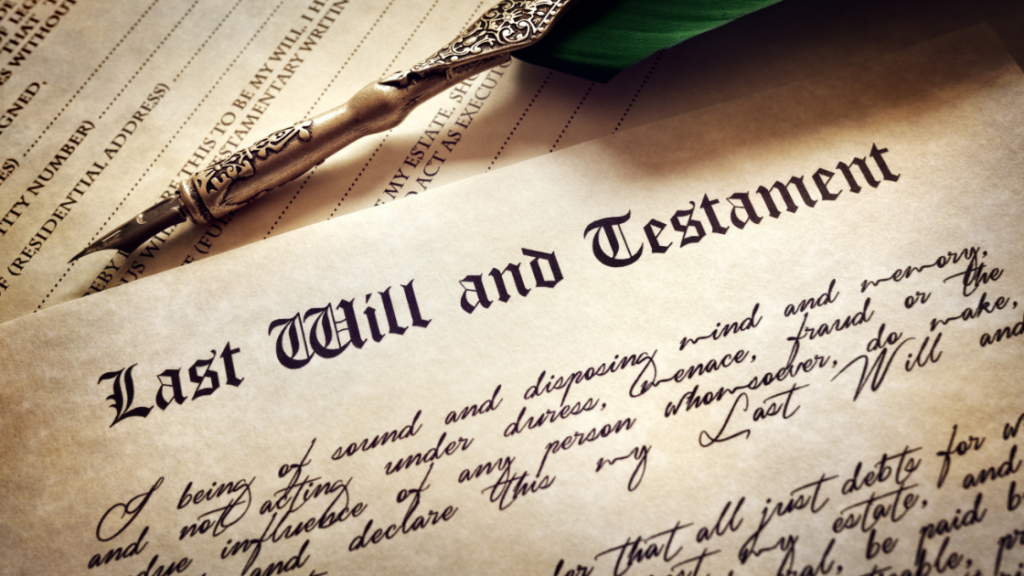You made a good decision in preparing and signing your Will. But is a Will the end-all, cure-all to make your assets pass to your beneficiaries as quickly as possible after you die? Many people believe that everything needs to go through Probate Court when you die. That’s why you have a Will prepared. Right?
Everybody needs a Will, and everyone should have a Will and other estate planning documents. But does everything go through Probate Court? Some assets are better off being taken care of in advance of your death. You want certain assets to go to the person who controls them automatically upon your death instead of waiting months, if not years after you die.
- Life Insurance and Retirement Accounts – Consider, first, life insurance and retirement accounts, such as a 401K or an IRA. Probate Court is not needed when you name a living beneficiary on your life insurance and retirement accounts. Many people forget to designate a life insurance or retirement account beneficiary, or they fail to update their beneficiaries before they die. Naming and keeping your beneficiaries current can save your loved ones thousands of dollars in legal expenses in claiming their inheritance through Probate Court. So long as you designate a beneficiary, the life insurance, and retirement account proceeds may be transferred to the named beneficiary without probate.
- Checking, Savings, and Certificate of Deposit Accounts – Like life insurance and retirement accounts, Florida allows owners of checking, savings, and certificate of deposit accounts to add a payable-on-death designation to their accounts. Again, so long as you designate a beneficiary, the checking, savings, and certificate of deposit account proceeds may be transferred to the named beneficiary without probate.
- Transfer on Death Registration for Stocks and Bonds – In Florida, you can register stocks and bonds in transfer-on-death (TOD) form. Brokerage accounts are commonly held in this manner. Suppose you register an account in TOD (beneficiary) form. In that case, your named beneficiary will inherit your account immediately upon your death, and the probate court is not required. Your beneficiary will deal with the brokerage company directly to transfer the account.
- Jointly Owned Property – You can own property jointly with someone else, such as real estate, a bank account, or a car. When you die, the jointly owned property is then owned solely by the surviving owner or owners, so long as the ownership included a right of survivorship. The property held in a joint tenancy will pass automatically to the surviving owners, in equal shares, when one of the owners dies. Thus, no probate is necessary.
- Enhanced Life Estate Deeds (Lady Bird Deeds) – Florida is one of only a few states that allow Enhanced Life Estate or Lady Bird Deeds. These types of deeds enable owners to preserve their Medicaid eligibility during their life, allowing them to keep valuable assets within their family. The Lady Bird Deed is a way to transfer property to beneficiaries immediately upon the owner’s death without probate. The owner has complete control of the property during their life (they can sell the property if they wish). Still, when they die, ownership immediately transfers to the named beneficiaries (for example, from Mom to her children, in equal shares, without probate).
- Revocable Living Trusts – Assets transferred into and held by a living trust that you create before you die will pass to your beneficiaries without going through Probate Court. The revocable living trust must be completed, AND your assets, such as real estate, vehicles, antiques, etc.) must be transferred into the trust before you die. According to the trust’s terms, the living trust assets will belong to your named beneficiaries upon your death. You remain in control of your assets during your life as a trustee. Still, when you die, your designated successor trustee will be in control of the trust assets for the benefit of your named beneficiaries. This is a good estate planning tool. Unfortunately, some people create a revocable living trust and never transfer any property into the trust as required. Or the stuff they did move into the trust they no longer own at the time of their death. Always a good idea to review your estate planning regularly.
- Motor Vehicles – Florida does not allow for a procedure to transfer vehicles upon your death. Motor vehicles can be transferred into a revocable living trust and dealt with in that manner by your named trustee following your death. What if you do not have a living trust, or if the vehicle was never transferred into the trust? Florida law does have procedures to transfer motor vehicle ownership without going through Probate Court. Florida Statute 319.28 provides a way to transfer ownership by operation of law, including when a car owner dies with or without a Will.
Remember, you want certain assets to go to the person who controls them automatically upon your death instead of waiting months, if not years after you die. So, take a moment every now and then to review your estate planning to ensure things are as they should be.



